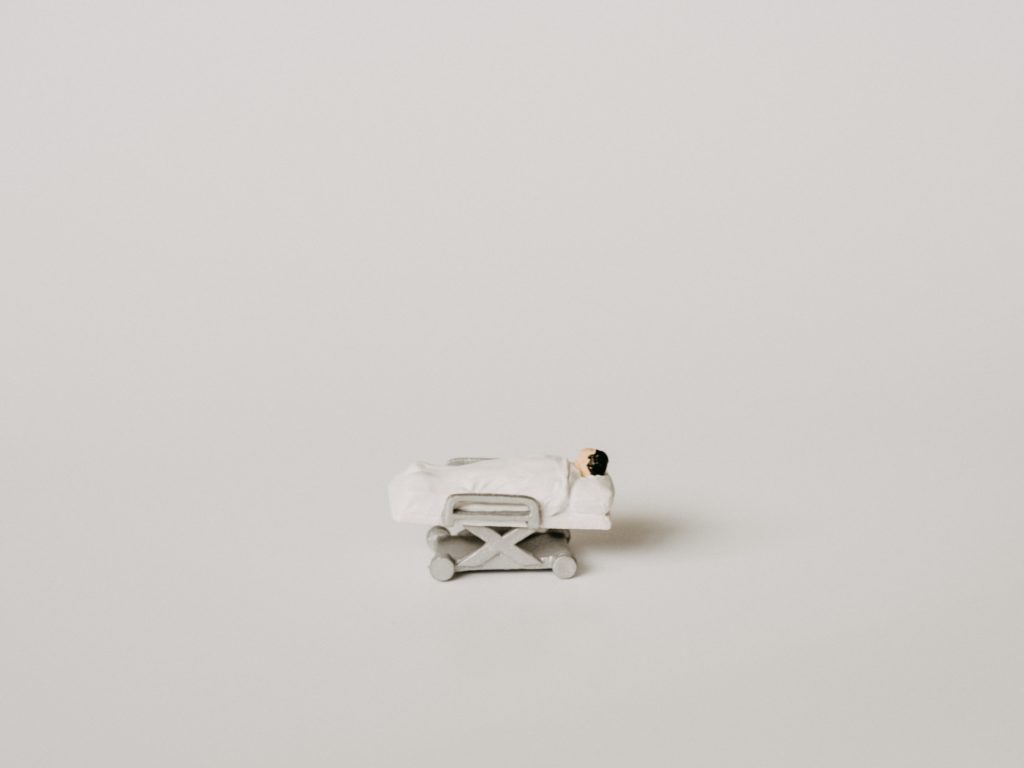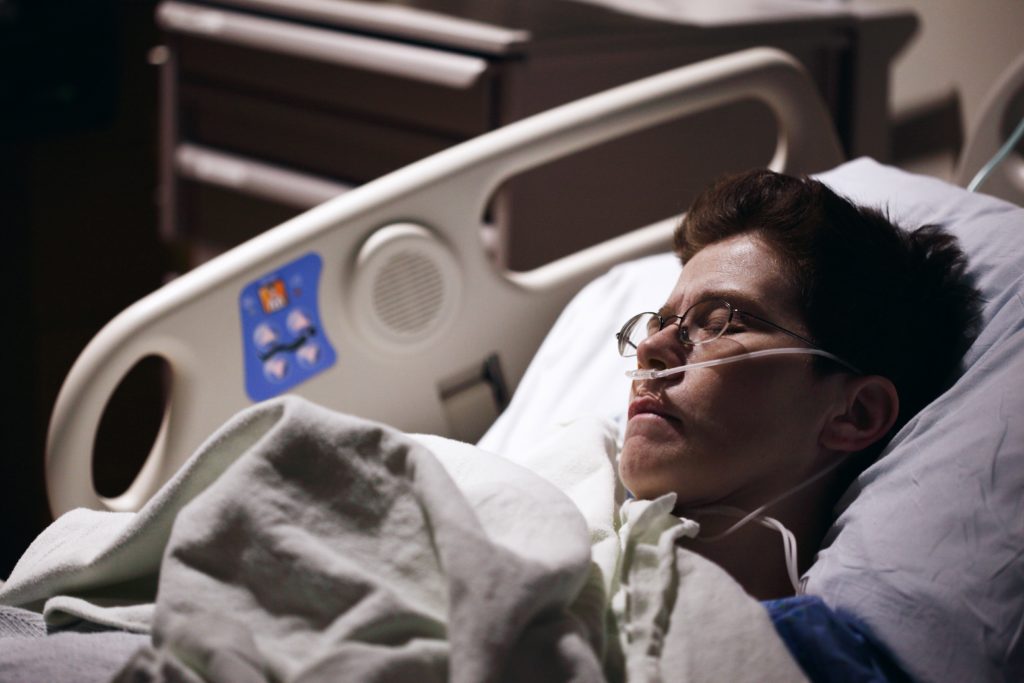What is Angel Dust or PCP?
As a dissociative drug, angel dust, also known as PCP, causes hallucinations and dissociation. Soon after PCP was developed for medical purposes, it was discontinued due to its ability to cause aggressive and erratic behavior and psychosis. However, some people use angel dust for its side effects despite the physical and mental problems it can cause.
Angel dust is a drug called PCP, which is the shortened name for phencyclidine. Phencyclidine or phenyl cyclohexyl piperidine (PCP), is a hallucinogen drug that’s used recreationally for its mind-altering side effects. It was originally developed as a surgical anesthetic in the 1950s but was eventually discontinued. Angel dust is often sold as a bitter-tasting white powder that can be snorted, injected, or swallowed in a capsule. In its powder form, PCP can also be smoked with tobacco and marijuana. Angel dust addiction effects are the reasons why people also refer to it as angel dust, supergrass, and rocket fuel.

Washington DC Angel Dust Epidemic
Those who are old enough will remember a huge PCP problem that gripped the United States in the ‘80s. Widespread abuse caused public panic and then, somewhat mysteriously, the drug seemingly faded away. Fast-forward to the present day; PCP usage in Washington DC, our nation’s capital, is rampant. In fact, abuse of the hallucinogen is far higher in DC than in any other major U.S. city. The disturbing trend is best seen among people who are arrested and brought into area jails, with an overwhelming majority of DC inmates testing positive for PCP during the booking process.
The latest Arrestee Drug Abuse Monitoring Program report, prepared by the Office of National Drug Control Policy, states that nearly 12% of men arrested in DC last year had Angel Dust (PCP) in their systems at the time of the arrest. In the other cities evaluated in the report, less than one percent of males arrested tested positive for PCP.
Last year, the federal government’s Drug Abuse Warning Network (DAWN) announced that PCP-related emergency room visits shot up by more than 400%, from 14,825 to 75,538, between 2005 and 2011, the most recent available data.
DC police have seen an increase in PCP-related violence and they’re bracing for more. The number of people arrested for murder and sexual assault charges who also tested positive for PCP jumped to 15 last year, increasing more than 45% over the last decade. Unfortunately, experts have no answers as to why the dangerous hallucinogen is so popular among DC addicts.
How is Angel Dust used?
PCP is available in a variety of tablets, capsules, and colored powders, which are either smoked, taken orally, or by the intranasal route (“snorted”). Smoking is the most common route when used recreationally. The liquid form of PCP is actually PCP base often dissolved in ether, a highly flammable solvent. For smoking, PCP is typically sprayed onto leafy material such as mint, parsley, oregano, or marijuana. Angel Dust may also be injected. The effects of PCP can last for 4 to 6 hours.
What are the effects of recreational PCP use?
Many believe angel dust to be one of the most dangerous drugs of abuse. A moderate amount of PCP often causes users to feel detached, distant, and estranged from their surroundings.
- Numbness of the extremities, slurred speech, and loss of coordination may be accompanied by a sense of strength and invulnerability.
- A blank stare, rapid and involuntary eye movements, and an exaggerated gait are among the more observable effects.
- Auditory hallucinations, image distortion, severe mood disorders, and amnesia may also occur.
- Acute anxiety and a feeling of impending doom, paranoia, violent hostility, a psychosis indistinguishable from schizophrenia.
Physiological effects of low to moderate doses of PCP
- Slight increase in breathing rate
- Rise in blood pressure and pulse rate
- Shallow respiration
- Flushing and profuse sweating occurs
Physiological effects of high doses of PCP
- A drop in blood pressure, pulse rate, and respiration.
- Nausea, vomiting
- Flicking up and down of the eyes
- Drooling
- Loss of balance and dizziness
- Violence, suicide
- Blurred vision
High doses of PCP can also cause seizures, coma, and death (often due to accidental injury or suicide during PCP intoxication). Psychological effects at high doses include delusions and hallucinations. Users often refer to the experiences from hallucinogens as a “trip”, or call an unpleasant experience a “bad trip.” As with any recreational drug that may be injected, the risk for HIV, hepatitis, and other infectious diseases from shared needles is a possibility.
Angel Dust Addiction
Angel dust is an addictive drug. Angel dust addiction usually begins when a person experiments with PCP. They become drawn to its side effects and want to experience them continuously. However, like many other drugs, the body eventually builds tolerance or becomes used to a specific dose of PCP. When this happens, the person would need to take more of it to experience the same side effects. Over time, the body adapts to ingesting angel dust regularly, making quitting difficult. At We Level Up Washington State, we offer a variety of behavioral health, primary mental health, and secondary dual diagnosis addiction treatment programs that have helped numerous patients recover from addiction to drugs like angel dust.
Signs of Angel Dust Addiction
Angel dust can greatly impact the brain’s chemical responses. Levels of chemicals or neurotransmitters like dopamine and serotonin can be affected. These chemicals play a role in mood, behavior, and overall mental health, all of which can be inhibited by abusing drugs like PCP.
A person who’s addicted to angel dust may exhibit mental and behavioral symptoms like:

- Mood swings
- Frequent anxiety
- Loss of sensation or balance
- Stiff muscles
- Memory loss
- Numbness in the extremities
- Low blood pressure
- Delusions
- Flashbacks of a “trip” or a time they were high
- Ignoring or neglecting responsibilities
- Changes in friend groups
- Spending a large amount of time and money on PCP
- Lack of or poor hygiene
- Irregular heartbeat
PCP can also cause coma, seizures, and damage to the skeletal system. A long-term PCP drug addiction often results in various health problems related to mental illness and decreased muscle health. If you recognize angel dust addictive behavior in yourself or a loved one, do not wait to get help.
Side Effects of Angel Dust
Angel dust alters a person’s perceptions and mood, often putting them in a trancelike state or causing an out-of-body experience. PCP can distort a person’s perception of time, their environment, light, sound, color, and touch. Other people may take it for the out-of-body experience it can produce, as well. Low to moderate doses of angel dust can impact the senses, causing a variety of symptoms.
Some common side effects of PCP include:
- Distorted perception of light, sound, touch, colors, and shapes
- Out-of-body experience
- Hallucinations
- Delusions
- Paranoia
- Anxiety
- Aggressive or violent behavior
- Delirium
- Confusion
- Inability to distinguish reality from fiction
While some people may enjoy the effects of PCP, it can cause severe anxiety, panic, and induce aggressive behavior. Angel dust can also have a similar effect to alcohol intoxication, inhibiting a person’s coordination, emotions, and judgment. Flashbacks of a PCP high can also occur days, weeks, or even months after a person has used it. PCP addiction symptoms increase the person’s chances of causing or being involved in an accident or committing suicide.
Diagnosing Angel Dust intoxication
According to the scientific piece ‘Phencyclidine Intoxication and Adverse Effects: A Clinical and Pharmacological Review of an Illicit Drug’, published by the National Library of Medicine, phencyclidine intoxication is a diagnosis that must be suspected clinically so that the appropriate tests are ordered for confirmation. The differential diagnosis of the clinical picture created by PCP includes other intoxications like schizophrenia, intracranial pathology, hypoxia, hypoglycemia, hyponatremia, sepsis, meningitis and encephalitis, thyroid storm, and neuroleptic malignant syndrome.
PCP intoxication shares many features with overdoses of cocaine, amphetamines, anticholinergic agents, hallucinogens, and withdrawal from benzodiazepines. Therefore, a qualitative urine toxicologic screen has become a mandatory standard of care for any patient, infant or adult, with the altered mental status of unknown etiology.

The simplest way to confirm suspected PCP intoxication is via qualitative chromatographic or immunologic urine drug screen since 9% of the active drug is excreted directly by the kidneys. The urine is usually positive for 2–4 days after PCP use, but after chronic exposure, the test results can be positive for over a week.
Angel Dust intoxication treatment
The management of PCP intoxication begins just as any other intoxication would. First, the client’s airway, breathing, circulation, thermoregulation, and neurologic status must be stabilized. The client should then be restrained and sedated if necessary to prevent self-inflicted injury, which is the most common cause of morbidity and mortality in these clients. Benzodiazepines are recommended in patients without psychosis, as antipsychotics can amplify PCP-induced hyperthermia, dystonic as well as anticholinergic reactions, and lower the seizure threshold. However, haloperidol has been described as a useful treatment for PCP-induced psychosis provided the patient is not hyperthermic.
Due to their more favorable side effect profile, atypical antipsychotics like olanzapine or ziprasidone would be a better choice than haloperidol when treating PCP-induced agitation and psychosis. Diphenhydramine 50mg or 1mg/kg can be used to treat PCP-induced (or haloperidol-induced) dystonic symptoms but should be administered after a urine sample is obtained for toxicologic screening, since it may cause the specimen to test falsely positive for PCP.

As with all intoxications, a blood glucose measurement should be obtained, and 100 mg thiamine and dextrose 50% should be administered if the blood sugar is abnormally low. Naloxone, to treat potentially congested opiates, is not necessary for patients with adequate respiration.
Reclaim your life from Angel Dust Addiction
Angel Dust addiction is a severe condition that can harm your health, relationships, and overall well-being. At We Level Up Washington, we focus on providing comprehensive treatment for primary mental health disorders often accompanying addiction.
Our team of professionals is dedicated to helping individuals like you overcome the challenges of Angel Dust addiction through evidence-based treatments. Contact us today to speak with one of our counselors who can provide you with valuable information and support. Rest assured that every call is kept private and confidential.
Take the first step towards recovery and regain control of your life. We Level Up Washington guides you to lasting healing and well-being.
We Level Up Washington Mental Health Center: Primary Mental Health Treatment with Secondary Co-Occurring Treatments
At We Level Up Washington, our primary focus is providing comprehensive mental health treatment for individuals facing angel dust addiction or PCP. While we do not directly provide detox services, we offer secondary treatment programs that address co-occurring addiction-related mental health disorders.
Our evidence-based approach to mental health treatments aims to improve your overall well-being and help you overcome the challenges of angel dust addiction or PCP use. Contact us today for a complimentary mental health evaluation and take the first step towards a transformative recovery journey.
Inpatient medical detox and primary addiction treatment services may be available at affiliated facilities within the We Level Up Treatment Centers network.
Sources
[1] Bey, T., & Patel, A. (2007). Phencyclidine intoxication and adverse effects: a clinical and pharmacological review of an illicit drug. The Washington StateJournal of emergency medicine, 8(1), 9–14. (https://www.ncbi.nlm.nih.gov)
[2] National Institute on Drug Abuse – PCP (Phencyclidine) (www.drugabuse.gov)